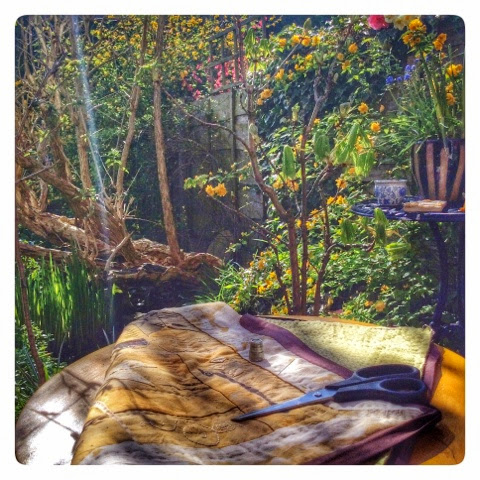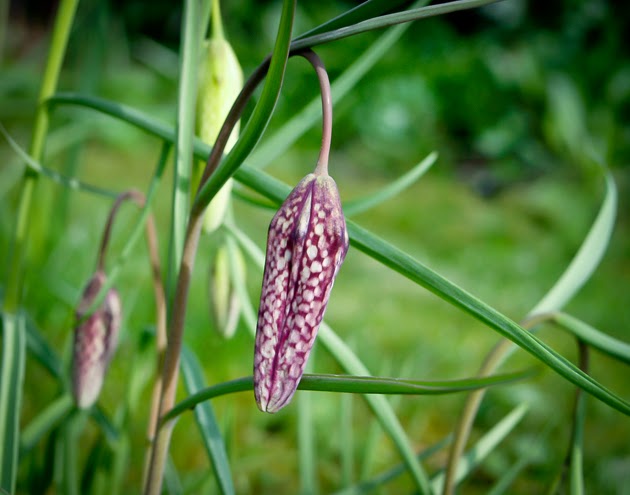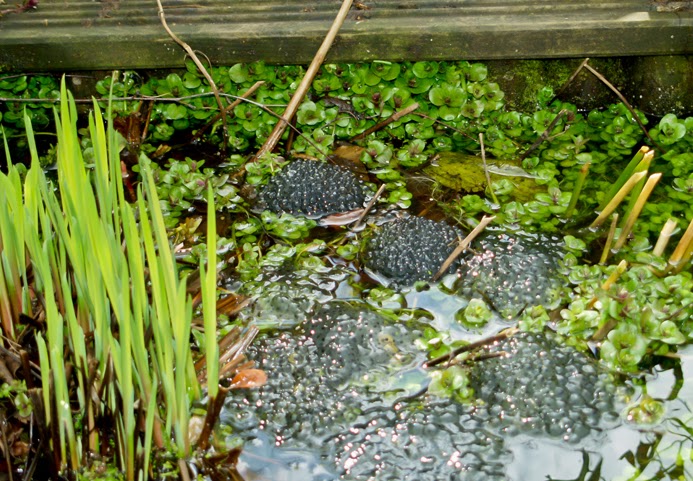Before I type another word can I just say how lovely it is to be bare foot on a Sunday afternoon. There, I've said it ... onwards ...
Dear Monty claims one of the many names for snakeshead fritillaries is Sulky Ladies, and the equally dear Richard Mabey lists one of their names as Leper's Bells. For a little delicate flower they have attracted some censorious names. I've even come across 'Drooping Bells of Sodom', though, like a Wikipedia editor, I'd like that verified before I believe it.
A couple of early 20th garden writers had similarly negative views on the innocent plants. In her poem The Land, Vita Sackville-West saw them as sinister and just not one of us,
And then I came to a field where the springing grass
Was dulled by the hanging cups of fritillaries
Sullen and foreign looking, the snaky flower
Scarfed in dull purple, like Egyptian girls
Camping among the furze, staining the waste
With foreign colour, sulky-dark and quaint
from 'The Land' by Vita Sackville-West (1927)
And an Edwardian plant collector, Reginald Farrer called them 'very miffy or very mimpish, or both'.
 |
| Reginald Farrer |
I'm not sure what 'mimpish' means, so I couldn't say for certain if I agree or not with Reggie, but it is true fritillaries have an air of witchery about them. I find them unnerving, with their inescapably snake-like flower buds:
unnaturally geometric patterning:
 |
| Rennie Mackintosh |
and their seed heads of shark sharp teeth:
Which is of course all the more reason to have them in this dull suburban garden.
It's good to be scared of your plants.
Snakes heads from Janet Walsh on Vimeo
Dear Richard Mabey talks beautifully about our Sulky Ladies in this Radio 4 programme:
http://www.bbc.co.uk/i/b012f7mn/












